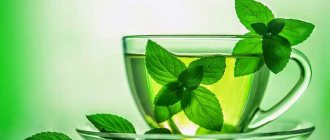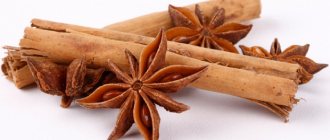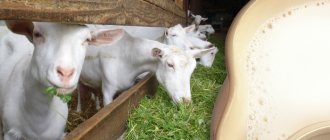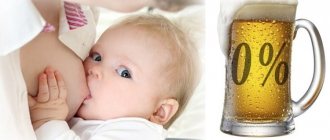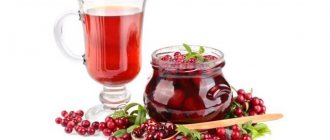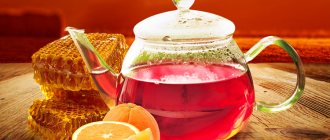Peppermint tea while breastfeeding
The sedative and calming properties of mint have been known for a long time. One might assume that in case of stress, nervous tension and anxiety, mint tea for nursing mothers becomes a salvation. This is wrong!
Unfortunately, mint seriously affects lactation, sharply reducing the amount of mother's milk. Therefore, if you want to prolong your breastfeeding period, you should avoid the aromatic drink.
In addition to mint, lactation is suppressed by plants such as oregano, yarrow, thyme, sorrel and parsley. It is advisable to avoid them in your menu, including in the form of tea components.
Tea to increase lactation
Today in baby food stores and pharmacies you can find special teas for nursing mothers that promote lactation. Can a nursing mother drink them? Yes, of course, because they were made for her. But do they make sense? Is it worth spending money on such products?
The main brands of lactation teas for nursing women:
- Hipp. A good herbal mixture (cumin, anise, fennel, nettle, lemon balm). It is convenient because it does not require brewing, as it is made in the form of granules that dissolve in warm water. In addition to the lactogenic effect, the Hipp drink will calm the baby and help reduce colic. Has good reviews from mothers who tried to increase lactation with its help.
- Humana. Drink in granules based on extracts of fennel, hibiscus, blackberry, etc. Contains vitamins that help mommy restore her body after pregnancy and childbirth. Does not contain dyes, flavors or tonics.
- Nestik. A cheaper analogue of the previous two products, but it additionally contains rose hips and chamomile. You need to be somewhat careful with this drink, since chamomile is a rather strong allergen.
- Grandma's basket. The lactation formula is not very convenient, as it comes in the form of sachets that need to be brewed. However, its advantage is that there are many different variations of tea, and it is the most affordable.
- Lactavit. It also takes time to brew and contains dill, fennel, cumin, and nettle. This tea will not only promote lactation, but will also help alleviate the period of colic. Its advantage is that it is not sweetened, although its taste is a little inferior to its analogues.
You can buy special tea for lactation, but you shouldn’t rely too much on its effect in this direction.
However, the advantage of such drinks is that they contain many valuable vitamins and microelements that are beneficial for women and babies.
According to experts, only two factors contribute to the increase in breast milk - frequent latching of the baby to the breast and adequate drinking regimen (at least 2.5 liters of water per day). Therefore, we can conclude that any lactation mixture or tea has an indirect effect on lactation. The drink replenishes fluid loss, normalizes water balance, and if the tea is drunk warm, it increases the flow of breast milk.
Sometimes the family does not have extra funds to purchase such drinks. In this case, you can limit yourself to homemade lactation teas using ginger, rose hips, fireweed, fennel, dill, anise, cumin. All these components can be easily found in a pharmacy at a low price or prepared independently. The effect of such drinks on lactation will be no worse than expensive store-bought analogues.
Green tea for breastfeeding: is it possible?
Strongly brewed tea contains abundant amounts of caffeine analogue – theine. With moderate consumption of tea, there are no negative consequences for breastfeeding.
A single rule for all types of tea during breastfeeding: they should be weak and diluted.
Harmlessness is also influenced by the naturalness of the ingredients (no artificial flavors!) and moderation (5 cups of tea when breastfeeding is already too much).
At the same time, remember that liquid is necessary for a young mother to form a sufficient amount of milk.
Natural tea without additives and with a small amount of sugar has a very positive effect on lactation.
When can you start drinking black tea while breastfeeding?
Black tea without additives is a drink that can be included in the menu of a nursing mother in the first month after the birth of the baby. It must be introduced into the diet with caution.
It is recommended to drink half a cup of tea without sugar first. You need to monitor the child’s condition throughout the day. If nothing happens, the amount of drink can be increased to 1-2 cups per day. It is recommended to drink tea in the first half of the day. Evening consumption of the drink can invigorate the mother and child, which will interfere with their restful sleep at night.
Tea with lemon while breastfeeding
Juicy citrus fruits, rich in vitamins, are relevant both during the cold season and in the summer heat. But not with breastfeeding, because even a tiny lemon peel can cause allergies in a baby.
An unexpected reaction can also occur to hibiscus tea. Other possible allergens include additives such as honey, ginger and milk.
You can check your baby’s reaction in “test mode”: try a little tea with milk and pause for a couple of hours.
If the baby is not covered in a rash and his cheeks are not pink, feel free to continue enjoying your favorite drink.
Manifestations of allergies also include greenish stools (with foam), pain in the abdomen, and restlessness of the toddler.
Ginger is considered a useful supplement during breastfeeding, but it is also a fairly strong allergen, so use it with caution.
What kind of tea should you not drink?
What tea is not recommended for a nursing mother to drink? Is it possible to avoid the harmful effects of tea?
- Tea with bergamot. Bergamot is a citrus plant. The baby may become allergic to it. Mom will be able to try the drink only four months after giving birth. If there are no allergies, you can drink no more than 300 ml per day.
- Hibiscus tea is not recommended during lactation. Sour tea with a bright burgundy color can spoil the taste of breast milk and cause allergies.
- Drink tea with added lemon with caution. The drink can be drunk only when the child is not allergic to citrus fruits.
Black tea for nursing mothers
A couple of cups of weak black tea with fructose or without sugar at all is the permitted daily intake during lactation.
It should not be aggravated: the abundance of caffeine in breast milk leads to the fact that babies sleep worse, become easily excitable, capricious, irritable, and restless.
If such a reaction is observed even from one cup drunk in the morning, temporarily switch to herbal teas and compotes. White and yellow (from fenugreek seeds) teas are allowed during feeding.
Black tea: pros and cons during lactation
The drink made from fermented leaves of the tea bush has long become national in Russia. They restore strength, cure colds, relieve fatigue and tension.
The effect of tea depends on the strength of the infusion - this increases the amount of caffeine, which provides an invigorating effect after drinking a cup. Due to its presence, black tea is often included in the list of prohibited foods for women who are breastfeeding.
The statement is only partly true - a very strong drink or an excessive amount of it will be harmful. Properly brewed, from a high-quality leaf, the infusion will benefit both mother and child during the war. Black tea has unique properties:
- increase immunity and protect the body from the effects of viruses due to the action of antioxidants that bind toxins that poison the body, tannin;
- strengthen tooth enamel and gum tissue due to fluoride in the infusion, which is important for nursing women;
- prevent the occurrence of depression and relieve fatigue in case of severe overwork due to the tonic effect of caffeine and tannin;
- gently normalize blood pressure that occurs due to severe fatigue;
- make the walls of blood vessels stronger, which helps to avoid heart attacks, strokes, and normalize blood sucking due to the substance quercetin;
- relieve inflammatory diseases of the genitourinary system;
- stimulate brain function, increase the ability to perceive new information;
- relieve headaches and migraines;
- normalize the condition after severe stress;
- stimulate blood microcirculation;
- normalize the action of the intestines during inflammation or disorders due to the large amount of tannins in the composition.
The restorative, restorative and preventive properties of tea are manifested only if a high-quality product is consumed, without dyes or flavors.
A too strong infusion or an increased amount of tea throughout the day will be harmful for a woman - a large amount of caffeine and tannin overly activates the nervous system of the nursing mother, and then the baby.
Tea for newborns
If the baby is breastfed, then he does not need any additional drink. Before giving your child any drink other than water, you should definitely consult a pediatrician!
Often tea for newborns has a therapeutic effect, for example, a drink with fennel and dill relieves gas and colic, mint and chamomile calm the nervous system and improve sleep, prebiotics improve intestinal function, etc. To give such drinks to children, you need to have a reason for this. They cannot be used “for prevention”. Yes, perhaps they will not cause harm, but their benefit will be questionable if there are no indications for use.
Of course, you should not give your child tea that adults drink. These drinks contain tannin and caffeine - substances that excite the nervous system and interfere with the absorption of iron. Such a drink will definitely harm the baby! It is important to know that mother’s milk is the ideal food and drink for a child up to six months, when complementary foods are introduced. Therefore, before purchasing tea for a newborn, you need to think: is it necessary?
You can and should drink tea during breastfeeding. But at the same time, you need to remember the risks and benefits of different types of drinks and not experiment while the child is very small.
Which one to choose for a nursing mother
During lactation, a woman needs to consume about two liters of fluid, mainly water. You can diversify your drinking regimen with compotes, freshly squeezed juices, herbal infusions, and teas. They will not only provide the necessary supply of moisture, but will become sources of nutrients and vitamins. With juices and compotes it is more or less clear: you should avoid citrus fruits, exotic fruits and berries, as well as those that are allergens. What kind of tea should I drink?
Whatever the young mother chooses, it is important to always carefully monitor the child’s reaction. Each may have its own characteristics.
Green
This type of tea undergoes fewer treatments, so it retains the following beneficial properties:
- Contains vitamin A, which is necessary for the beauty of the skin, visual acuity and normal formation of muscles, ligaments and cartilage. All this is especially important for a woman who has just given birth in order to recover faster.
- Contains vitamin C, which is needed for skin and muscles. It also strengthens the immune system.
- There are B vitamins that normalize digestion, help strengthen nerves, and increase skin elasticity.
- There are trace elements such as zinc, fluorine, copper, selenium and iodine. They improve the functioning of many internal organs and systems.
- Green tea is rich in antioxidants or tannins. They slow down cell aging, normalize blood pressure and have bactericidal properties.
Thus, green tea helps strengthen the cardiovascular system, nerve stability, vigor, weight loss, and improve the condition of skin and hair.
However, do not forget that it contains theine, a substance similar to caffeine. Its content is much less, but its effect is much longer. Therefore, you need to drink green tea while observing the following precautions:
- Do not use before bedtime or on an empty stomach;
- It is advisable not to add sugar, it is better to replace it with stevia;
- brew with water no hotter than 80 degrees;
- It is undesirable to add milk and its derivatives;
- Do not brew for a long time, as it may become bitter;
- the daily norm should not exceed half a liter of drink.
It is very important to pay attention to the choice of product, since low-quality, expired tea will cause allergies, nervousness, colic and digestive disorders in the baby.
It is always necessary to look at the production date, expiration date, as well as the packaging itself. A damaged, swollen pack indicates improper storage, which means the product has lost its properties. It is better to choose loose leaf or fermented loose tea rather than tea bags, and preferably from trusted and well-known manufacturers. This way you can be more confident in the quality of the product.
Is it possible to have black with milk?
A young mother is also allowed to drink this tea, but she needs to be more careful. This is due to the rather high theine content compared to green. When choosing black tea, you need to follow the same recommendations as for green tea. It is also advisable not to buy a product with various additives and flavorings, as they will become an additional threat to the development of allergies.
When drinking black tea, consider the following tips:
- The daily norm should not exceed one cup, but more is possible if you make a very weak brew.
- You should not drink black tea on an empty stomach or at night. It's better to do this in the morning.
- It is not recommended to dilute the drink with milk, lemon, honey and other additives.
Black tea is useful for vitamins A, PP, group B, microelements such as phosphorus, potassium, sodium, calcium, magnesium. In addition, it contains pectin, which is very effective in losing weight.
But you need to drink it with great caution, while carefully monitoring the child’s well-being. It is this tea that most often causes colic and digestive disorders.
As for milk, its presence in any type of drink is not very desirable. This product is one of the strong allergens along with strawberries, fish or oranges.
Watch the video about what a mother can drink after giving birth:
Sugar during breastfeeding: benefits and harms
Can a nursing mother have sugar? Of course, we are not talking about completely excluding this product from the menu. After all, sugar has a number of beneficial properties:
- This is a carbohydrate, and therefore is necessary to “recharge” the body with energy.
- The sweet product promotes better absorption of certain vitamins.
- Sweet foods promote the release of endorphins (happiness hormones). This point is especially relevant for mothers suffering from postpartum depression. Sometimes during breastfeeding you simply crave sweets unbearably.
However, despite the advantages, sugar has many more negative properties that cannot be ignored during lactation:
- Refined sugar in crystal form is considered empty. During processing, all vitamins and minerals are lost. It's just pure carbohydrate. Ideally, you need to replace it with fruits, vegetables and cereals - these are both carbohydrates and nutrients.
- Sugar crystals are absorbed instantly, sharply raising blood glucose levels. And after some time there follows a sharp decline. This may not have the best effect on the functioning of the endocrine and immune systems. And even provoke diabetes.
- Sweets in excess, especially in combination with other foods, cause fermentation in the body. This can lead not only to intestinal problems for the mother, but also cause painful colic in the baby.
- Eating a lot of sweets by the mother can lead to allergies or diathesis in the child. The baby's body is trying to cope with the increased amount of glucose in milk and is trying with all its might to remove toxins. At the same time, all internal organs experience significant stress.
- And of course, no one has canceled the problem of excess weight. The fact that eating sweets makes you gain weight is no longer a secret. And for a young mother trying to return to her pre-pregnancy figure, extra pounds are of no use at all.
Is it possible to drink tea with sugar during lactation? If you really want to, then you can. With one caveat: the number of spoons of sugar should not exceed one or two.
Some mothers prefer to eat cane sugar. In terms of calorie content, it is not much different from ordinary beetroot and at the same time contains a certain amount of useful substances (for example, vitamins). However, the cane version is just as harmful as the regular one. In particular, it is prohibited for people with diabetes.



